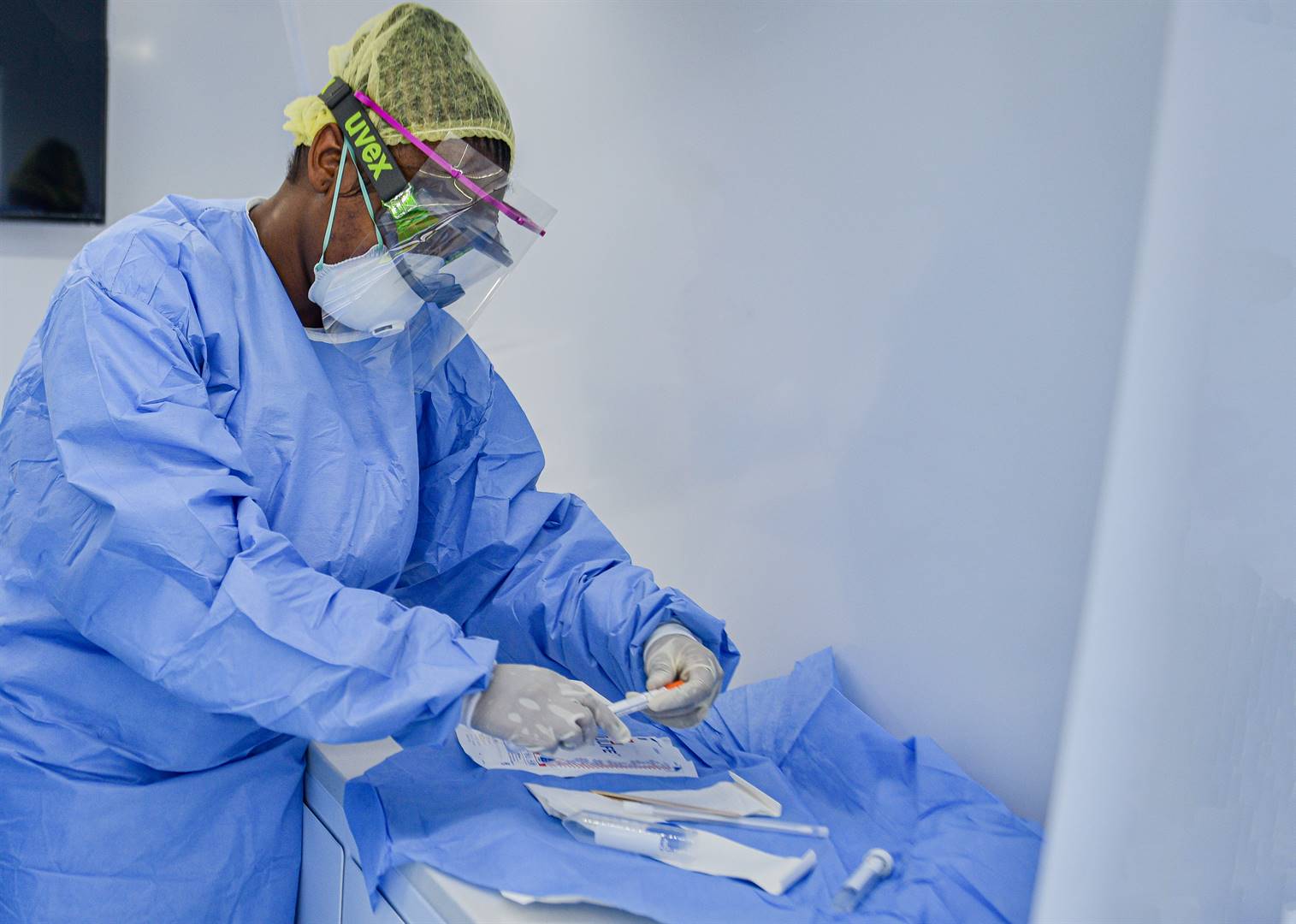


A doctor in protective gear prepares her equipment before testing a patient for Covid-19.(Moeketsi Mamne)
- Diabetics with Covid-19 were more likely to require admission to ICU, a few studies suggest.
- UCT’s endocrinology head said 80% of the diabetics who were hospitalised with severe symptoms, only tested for the first time upon admission.
- Just over 40% of those patients ended up not surviving and early stay-at-home messaging could have put them at greater risk.
Western Cape Premier Alan Winde has called on diabetics to get tested sooner rather than later if they show symptoms, as the province increasingly learns that diabetics become more at risk at later stages of the virus.
“As a diabetic who is currently recovering from Covid-19 myself, it is very important to me that those high risk groups, such as people over 55, and anyone who has a chronic condition, are aware of their risk and take suitable precautions to protect themselves,” Winde said in his daily statement on Friday.
“Diabetics are particularly vulnerable to severe illness once they become symptomatic and require earlier care and intervention for a better health outcome. Research in the province has shown us that many diabetics are only tested for Covid-19 when they arrive at the hospital with severe symptoms such as shortness of breath.
“My message to all diabetics today is that, if you have any symptoms, get tested as soon as possible. This allows us to identify your risk and ensure that you become part of our risk stratified approach to treating diabetics with Covid-19.”
Winde said their action plan focuses on low, medium and high risk to decrease the morbidity and mortality among people with diabetes.
Low risk is categorised as those whose diabetes is well controlled, with no additional comorbidities. They will receive daily calls from the Department’s Contact Centre to check their symptoms. Should they struggle to control their glucose level and their condition deteriorates, they will be offered admission to a hospital where their condition can be treated and controlled.
Medium is categorised as persons whose diabetes is well or moderately controlled, with additional comorbidities. They will receive daily calls from “PODS” to check their symptoms and their blood glucose level and, if deemed medically necessary, will be offered admission to the Hospital of Hope where their condition can be treated and controlled.
High risk is persons with poorly controlled diabetes, with additional comorbidities and over the age of 70. They will be contacted and offered admission to a tertiary hospital to receive the necessary specialised medical care.
Majority of diabetics with symptoms testing too late
On Thursday, Winde and the provincial health department had held its weekly digicon.
Around 80% of the diabetics who were hospitalised with severe symptoms in the province, were only tested for the first time upon admission, it emerged on Thursday.
And of those who were admitted to hospital, 42% did not survive, according to Professor Joel Dave, head of endocrinology at UCT.
Dave said they unfortunately had a history of patients presenting late in the course of their disease due to time and economic pressure.
READ | Numbers ‘stable’ for the past 10 days, says health dept
But early messaging about Covid-19 testing may have also kept them away from the help they needed.
“If we look specific to Covid-19, the very early messaging was that, because we didn’t want to overwhelm healthcare facilities and testing facilities with people who just had very mild disease, patients should self-isolate at home and make their way to testing centres and hospitals when they have shortness of breath,” he said in a media briefing.
“While this may be true for people that don’t really have co-morbidities, we are now finding out that that may not be the correct advice for people living with diabetes and other co-morbidities that put them at great risk.”
Dave said prevention was key.
He commended the provincial health department for creating extra capacity for early testing and admitting diabetics at high risk.
He said they were devising a strategy to allow diabetics and people with obesity to test earlier once they start showing symptoms.
If health workers could help patients control their sugar levels and rapidly escalate their care should they suddenly deteriorate, it made sense that they might be able to change the outcome, he said.
Winde, a Type 2 diabetic, was recently diagnosed with Covid-19.
Still on bed rest, he told media via a digital link on Thursday that he was able to test the health system and ended up impressed with the urgency of care and treatment.

